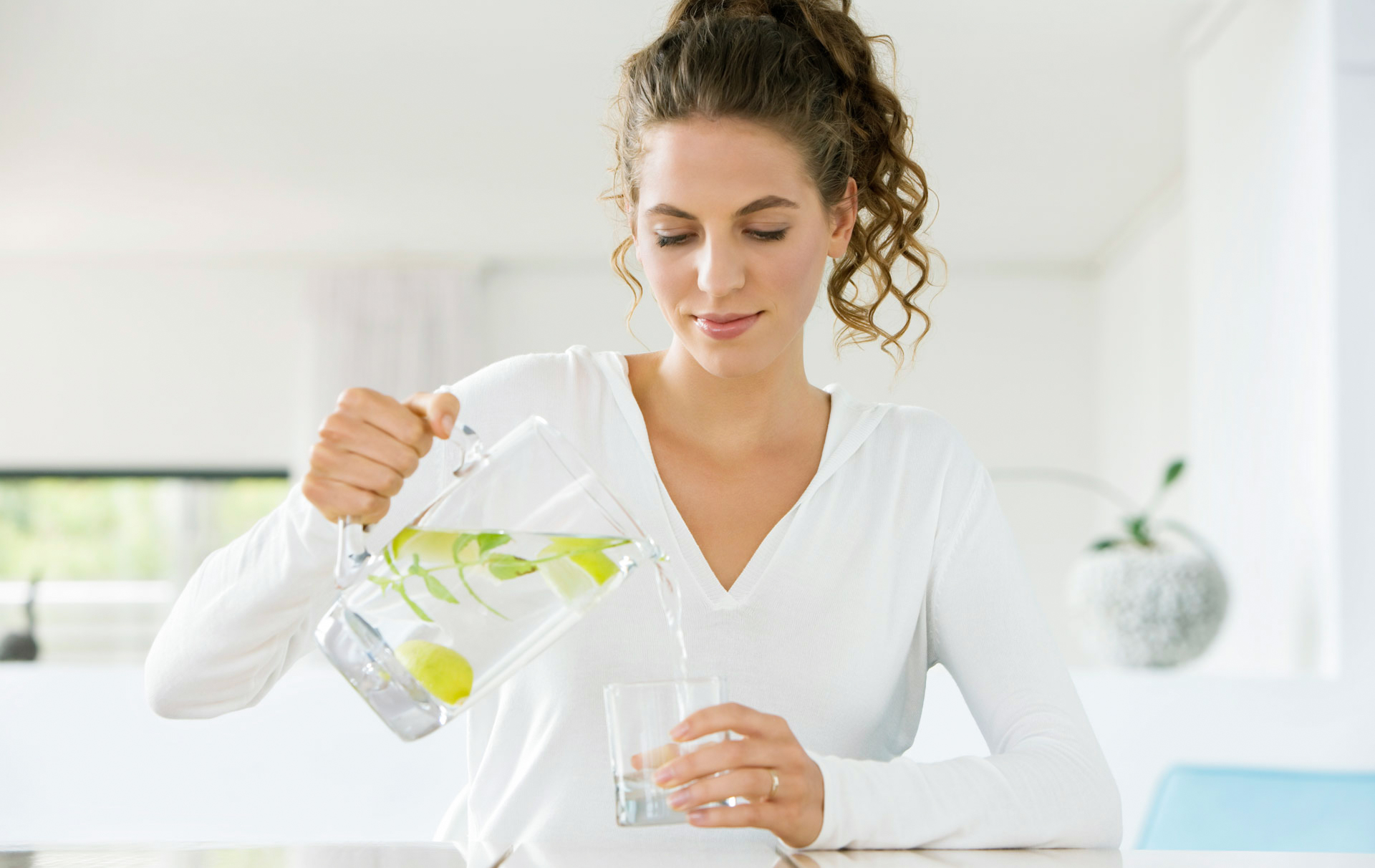Water gives us life, and is absolutely fundamental to long-term health. Every single cell, tissue, and organ in your body needs water to work properly. The human body is made up of over 50 – 70 percent water. Your body depends on water to survive.
Every day, water:
• delivers oxygen to your body
• nourishes your body’s cells, which perform a wide range of necessary duties
• helps flush out toxins
• aids in a healthy digestive system
• breaks down your food for nutrition
• protects your vital organs
In order to keep hydrated, stick to regular schedule of drinking water through the day.
Most people mistakenly assume they only need to drink more only when they have dry mouth or feel thirsty. However, feelings of thirst will develop long after your body’s water supply has fallen below the level needed for optimal functioning. A dry mouth is actually a last sign of chronic dehydration.
Also, monitor colour of your urine to see if you are adequately hydrated. A well hydrated body produces urine that is clear. A slightly moderately dehydrated body produces bright yellow urine. If you are chronically dehydrated you produce urine that is orange or dark coloured.
DOs
- Get in the habit of drinking a glass of water or two before every meal. By doing so you support your digestion and reduce hunger pangs.
- Increase your consumption of water-rich foods. Fruits and vegetables such as apples, broccoli, tomatoes, and watermelon have high water content, as do eggs and yoghurt.
- Take regular “water breaks” through the day or carry a glass or stainless-steel water bottle with you.
- Consume ¼ teaspoon of salt (sea or Celtic) per one litre of water. This ensures an adequate mineral supply is maintained.
DON’Ts
- Avoid soda, which is full of artificial additives and highly dehydrating. Also avoid non-herbal teas – like green tea, black tea and oolong tea. Instead, make your own tea by adding fruits like lemons, oranges, or apples to boiling water.
- Beware of bottled water. Plastic contains unhealthy chemicals that can easily leach into the water and compromise its nutritional value.
- Limit your consumption of coffee, sodas and alcoholic beverages as they are very dehydrating. Instead of coffee, drink a large glass of water before breakfast – it will both energise you and fill you up.
So how much water should you drink every day?
You’ve probably heard the advice to drink eight glasses of water a day.
You might need to modify your total fluid intake based on several factors:
- exercise – if you do any activity that makes you sweat, you need to drink extra water to cover the fluid loss.
- environment – hot or humid weather can make you sweat and requires additional fluid. Dehydration also can occur at high altitudes.
- overall health – your body loses fluids when you have a fever, vomiting or diarrhoea, bladder infections and urinary tract stones.
- pregnancy and breast-feeding – if you are pregnant or breast-feeding, you may need additional fluids to stay hydrated.
You can calculate your water intake according to the following formula: Kg / 20 = L
Your body’s weight in kilograms divided by 20 and you get how many litres of water you should drink per day.
By modifying your water intake, you will begin to notice positive difference in how you feel.


